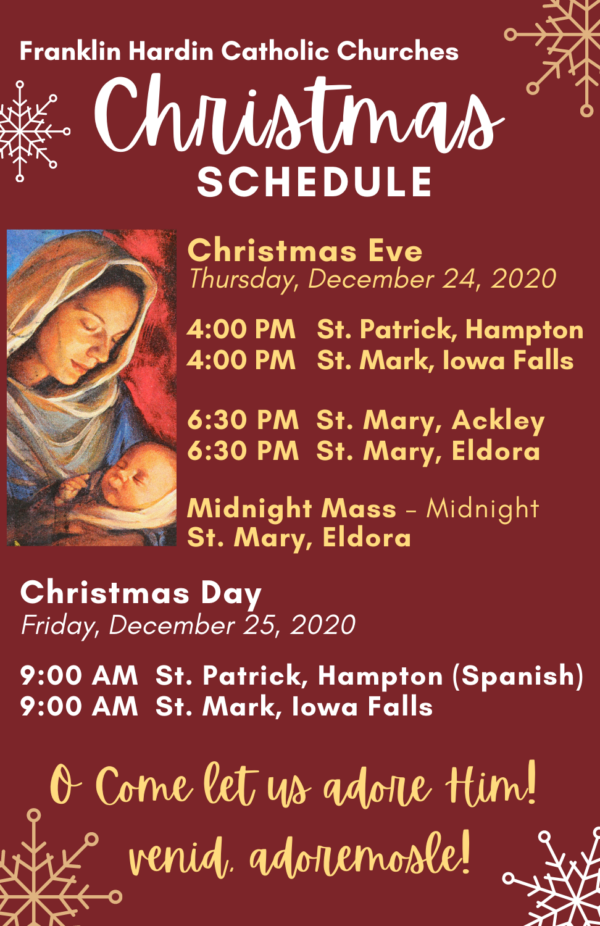Two weeks ago (Oct. 23 bulletin) I talked about indulgences, and what they are; thus, if you have not read that bulletin column I strongly encourage you to do so before you read this one (You can also find that column online here rb.gy/but6iw).
This week I want to talk HOW do we actually obtain indulgences. While there are many ways, and details to it, I will just give some general things here.
First of all, an indulgence can be “partial” or “plenary.” Partial, means it removes part of the “temporal punishment due to sin” and plenary means it removes all of the “temporal punishment due to sin.”
For “partial indulgences,” while MANY ways to obtain God’s indulgent grace, the Church names four “general concessions,” or sort of general actions, which really should be a normal part of a Christian’s life (again, part of a good “spiritual diet.”)
1) Praying to God in hardship: “A partial indulgence is granted to the Christian faithful who, while carrying out their duties and enduring hardships of life, raise their minds in humble trust to God and make, at least mentally a pious invocation”
2) Serving the poor: A partial indulgence is granted to the Christian faithful who, led by the spirit of faith, give compassionately of themselves or of their goods to serve their brothers in need.
3) Giving up something (Penance/Fasting): A partial indulgence is granted to the Christian faithful who, in a spirit of penance, voluntarily abstain from something that is licit for or pleasing to them.
4) Evangelizing/Sharing the Faith: A partial indulgence is granted to the Christian faithful who, in the particularly circumstances of daily life, voluntarily give explicit witness to their faith before others.
There are many other particular works and prayers that have “partial indulgences” attached to them.
For “PLENARY indulgences” is any work, prayer or action, that the Church has declared has a “PLENARY indulgence” attached to it. Many times, these “prescribed works” for a plenary indulgence are connected to a pious action at specific Liturgical Time and/or a prayerful visit to a particular place. For example, during the week of All Souls Day (Nov. 1-8), a visit to a cemetery to pray for the dead has a plenary indulgence attached to that “work.” But to obtain the plenary indulgence, in addition to the “prescribed work” – in this example, “visit to a cemetery to pray for the dead”– three other “conditions” must also be fulfilled:
1) Sacramental Confession
2) Reception of Communion
3) Pray for the Pope (an Our Father and a Hail Mary). These other three conditions in addition to the “prescribed work” (i.e. visit to the cemetery and pray for the dead), need not be done on the same day as the prescribed work, but can be done within several days either before or after. Also, part of obtaining the plenary indulgence is the disposition to “exclude all attachment to sin.”
But not all plenary indulgences are at specific liturgical times. Some are as simple as doing some prayers in your local church:
1) Adoration of the Blessed Sacrament for a half hour – simply stop in the church and pray before the tabernacle for this time; in Hampton this is available every Thursday from 6 p.m.–8 p.m.
2) Praying a rosary in a church
These also have plenary indulgences attached to them – assuming the fulfillment of the other three conditions and detachment from sin.
Thus, the Church gives us many ways where we can receive the indulgent grace of Jesus Christ, which we can receive for ourselves or that we can offer to the souls in purgatory to enter more fully into the eternal rest of heaven.
Peace,
– Fr. Kevin


